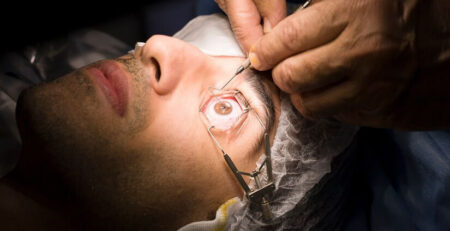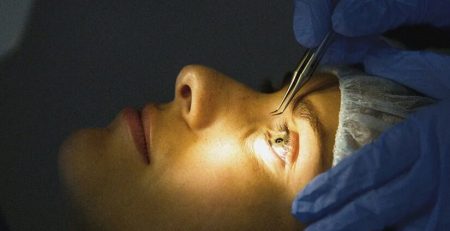How long does LASIK last?
LASIK, also known as laser-assisted in situ keratomileusis, is a popular eye surgery that helps correct refractive errors such as nearsightedness, farsightedness, and astigmatism. LASIK surgery is a non-invasive procedure that involves creating a flap and reshaping the cornea.
LASIK can significantly improve vision and reduce or eliminate the need for glasses or contact lenses. But there is a burning question: how long does LASIK last? LASIK generally lasts for a longer period, but the age at which LASIK is done affects the outcome of the procedure. This is because LASIK neutralizes the power at the time of surgery. Therefore, you should have stable power at the time of LASIK surgery.
Understanding Eye Growth and Power Stabilization
Before moving forward, let’s understand eye growth and power stabilization.
During childhood and adolescence, the eye undergoes continuous growth and development, including changes in the shape and size of the cornea, as well as the lens inside the eye. These changes can lead to fluctuations in refractive power, making it difficult to determine the true degree of correction required for LASIK.
Therefore, performing LASIK surgery at an early age, between 17 and 20, is not recommended because, at this age, the eye is in the growth phase, causing the refractive error to return. In that case, you may require additional surgery, significantly increasing the LASIK eye surgery cost.
Similarly, if the LASIK surgery is performed too late, like after 40 to 45, it is also not recommended because, at this age, the shape and size of the cornea and lens begin to change again. Thus, if you undergo LASIK surgery, chances of recurrence of power.

So, What is The Right Age to Get LASIK for Long-term Results?
Given the considerations of eye maturation and age changes, the ideal age for LASIK generally falls within the range of 21 to 40. This time frame offers a window when the eye is relatively stable, and the risk of recurrence or age-related vision changes is very low.
However, it’s better to consult the best eye specialist in Delhi to determine the right age for LASIK.
Additional Factors Affecting the Result of LASIK
Apart from age, other factors may influence the timing of LASIK, such as the severity of the refractive error, overall eye health, and lifestyle.
If you have high refractive errors, you may need to wait until your early 20s for LASIK to achieve maximum stability, but if there are mild refractive errors, you can undergo the procedure earlier. Any underlying eye conditions, such as dry eye or cataracts, are also addressed before LASIK surgery.
Take Away!
Overall, if LASIK is performed at the right age and under the guidance of a qualified eye specialist, it can provide a lifetime of clear, glasses-free vision. Therefore, it is essential to understand the factors influencing the timing of LASIK surgery to make an informed decision.
If you are considering LASIK surgery, schedule your consultation with Dr Anisha Gupta, an eye specialist in Delhi. She will explain the procedure, including the timing of the procedure.










